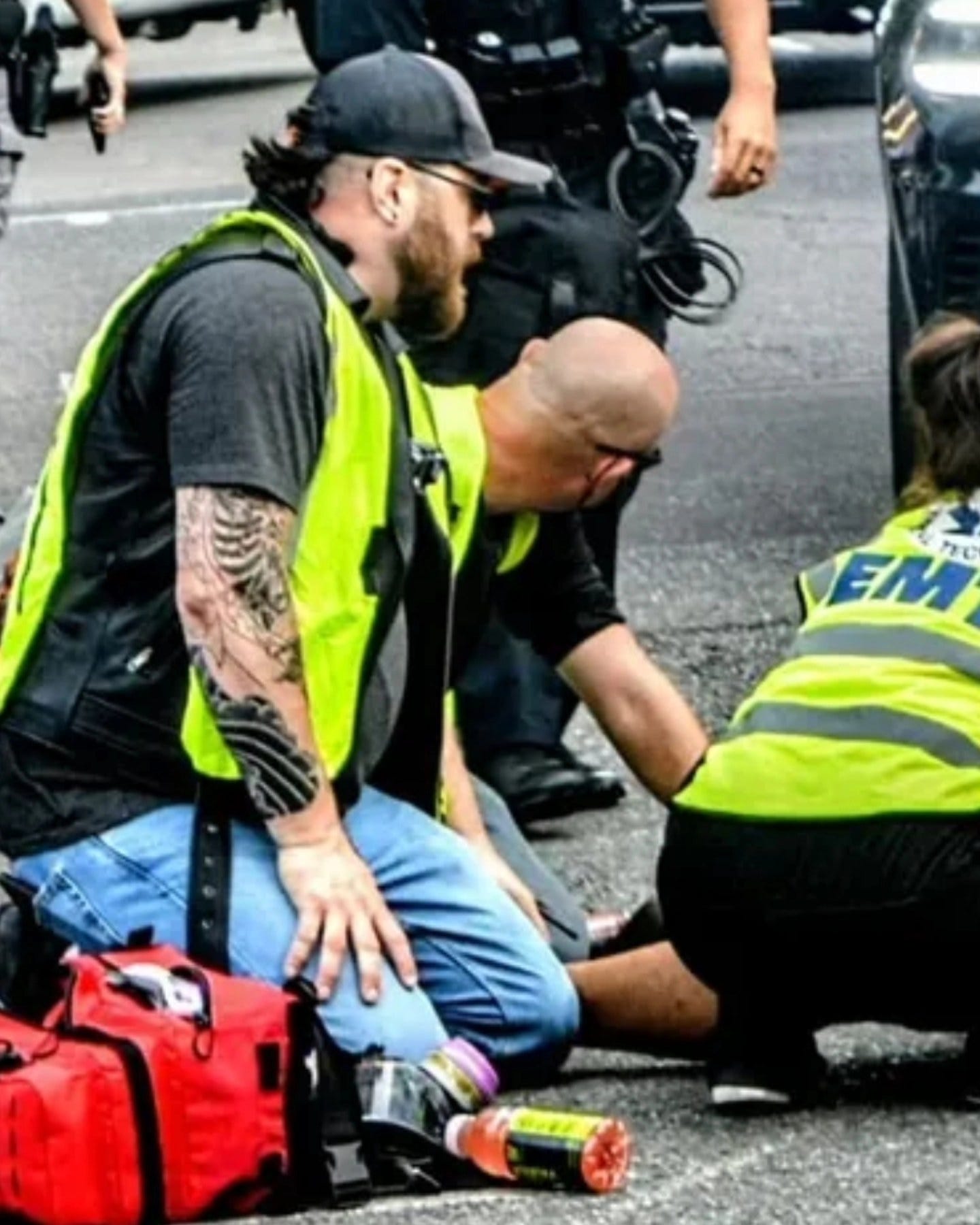Gamboa case sparks "gun rights" talk
Utah law already regulates some weapons at public events
SALT LAKE CITY, Utah – Aside from police and any licensed security in the area, at least two people brought firearms to the June 14 protest that was attended by more than 10,000 people. Utah’s open-carry laws allow it.
As a result, Afa Ah Loo is dead. Arturo Gamboa was wounded, publicly arrested, jailed for murder, and then released pending possible prosecution. The man who fired the shots remains unidentified and uncharged.
The public wants to know why.
Some of the questions circulating on social media: Why would Gamboa or anyone else bring an assault-styled weapon to a peaceful protest? Why would the so-called “peacekeeper” bring a weapon when the organization that contracted the volunteer has an explicit “no weapons” policy? Why was Gamboa arrested and the peacekeeper not? Why was Gamboa released if he is a public threat?
“The person who intentionally shot my client in the back and recklessly killed an innocent man was never incarcerated. My client is Hispanic; the killer is White. You can make your own conclusions,” said attorney Greg Skordas in a June 23 email to The Hardy Report. Skordas represents Gamboa.
The Salt Lake City Police Department declined to comment.
Salt Lake County District Attorney Sim Gill did not respond to emails or telephone calls from THR. However the DA’s office has indicated that its ongoing investigation could lead to charges, according to various media reports.
This could be a big deal for an overwhelmingly red state that historically stands firm on gun rights.
Utah has virtually looked the other way since 2020 when groups of citizens, mostly White, mostly Republican, armed with weapons and tactical gear began showing up at protests such as Black Lives Matter in the name of helping police departments protect businesses and people.
Utah has recently passed laws in the name of public safety that, some say, reduce or take away rights from people who are transgender, nonwhite, non-religious, poor, single, or who otherwise don’t fit the popular social/political/religious narrative.
It seems logical that lawmakers must soon discuss what the public is already discussing: how open-carry laws weigh compared to whether weapons should be banned at public events, and how to accomplish that without favor.
Maybe current Utah law already addresses the problem, and no one is openly talking about it.
While any citizen has the right to open-carry firearms, such as Gamboa, no citizen has the right to deceive others that they have some kind of authority – and they especially can’t use a firearm to intimidate or coerce the public.
It is a class B misdemeanor to impersonate a peace officer, according to Utah State Code Section 76-8-512. Among the provisions, an actor impersonates an officer when they intend to induce another individual to submit to the actor’s pretended official authority or to rely on the actor’s pretended official act.
The Utah Security Personnel Licensing Act regulates the security industry.
The rules are geared toward security companies, not individual service providers or the events that contract with or hire them. It is up to the experts to interpret whether these rules apply to the Gamboa case.
But THR has some thoughts.
Gamboa had a right to open carry as an individual. Statements from SLCPD, the DA’s office, witnesses and Skordas seem to indicate that Gamboa was, and was perceived as, a lone actor. No one reports believing he was acting in any authoritative capacity.
Gamboa was jailed on suspicion of murder even though he never fired a shot. THR believes but has not confirmed that his arrest is based on a law that assigns criminal responsibility to a person if the death occurs as a result of a person’s criminal actions.
So far, the authorities have not declared what, if any, criminal action Gamboa was committing.
“My client committed no crime. That was obvious within 24 hours of his arrest,” Skordas said in the email.
The “peacekeeper” who wounded Gamboa and killed Ah Loo was a security volunteer for event organizer 50501. The “peacekeeper” brought a loaded handgun even though 50501 has a strict “no weapons” policy. The “peacekeeper” wore an unmarked yellow vest. It is reasonable that the public believed he was a security officer. It is not unreasonable to question whether the public believed he was a police officer.
So, while the “peacekeeper” had a right to open carry as an individual, did he have a right to do so as an independent contracted security officer?
A person who wears, carries, possesses or has immediate access to a firearm in the performance of the individual’s duties at a mass gathering location is required to be licensed as an “armed private security officer,” according to Utah State Code Section 58-63-102.
Licensure as an armed private security officer requires basic education, firearms training, and an examination, according to Section 58-63-302(2). The license must be displayed upon request, including a request by a member of the public, according to Section 58-63-309(2).
Private security officers must wear a “soft uniform” that clearly displays the word “Security,” according to the Utah Office of Administrative Rule R156-63a-605.

A violation under the requirement to be licensed is a class A misdemeanor. Police and government attorneys are authorized to initiate misdemeanors prosecutions.
The Utah Division of Professional Licensing is required to investigate and issue a citation for violations of the Security Personnel Licensing Act, according to Section 58-63-503.
THR has called DOPL and will update if and when the call is returned.
© All rights reserved The Hardy Report LLC. Direct licensing inquiries to The Hardy Report.



